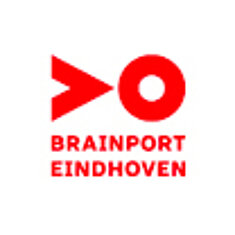Meet our pioneer: Lourens Touwen
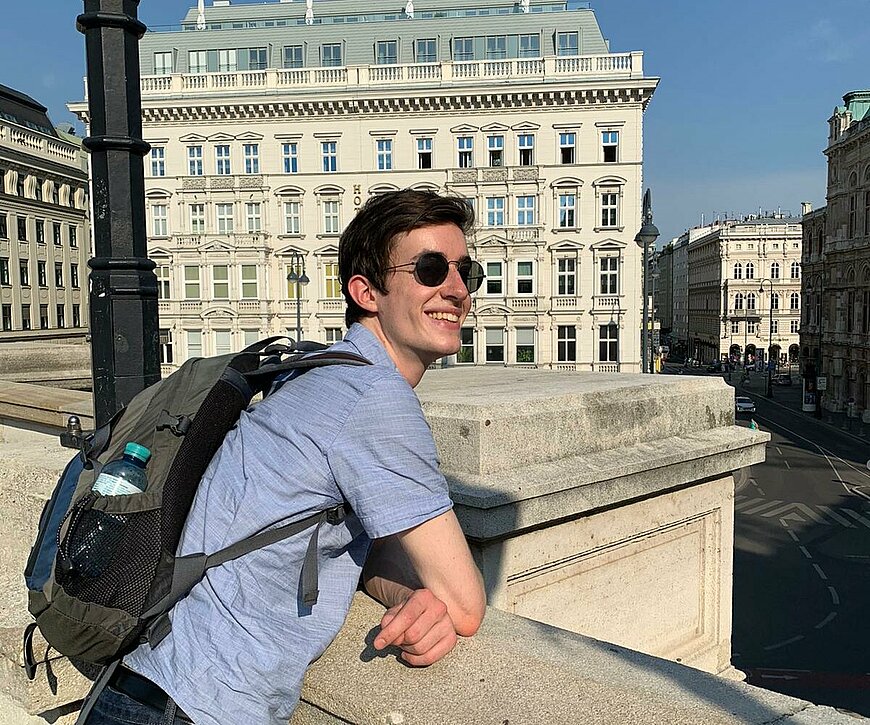
In Brainport Eindhoven we change the world because here we develop key technologies that change society. We can only do that because of our pioneers. Therefore, we would like you to meet one of our pioneers: Lourens Touwen.
Who are you?
My name is Lourens Touwen and I’m 21 years old. I'm originally from Leiden, but I've been living in rooms in Eindhoven for 3 years now.
What do you study?
I do Applied Mathematics at TU/e. I’m now in my fourth year.
Why did you choose this study?
For this, I obtained the propaedeutic certificate in Data Science cum laude. I chose the Data Science study when I was very concerned with all the promises of Data Science, big data and AI. But that study wasn't quite for me, because it didn't have the depth I was looking for. At the end of my first year, I concluded that I found the material interesting, but it didn't give me the tools to understand Data Science in 5 years. Then I hesitated between Computer Science and Applied Mathematics because they are both important in Data Science. Because I liked the mathematical way of thinking and the difficulty of it challenged me, I chose Applied Mathematics.
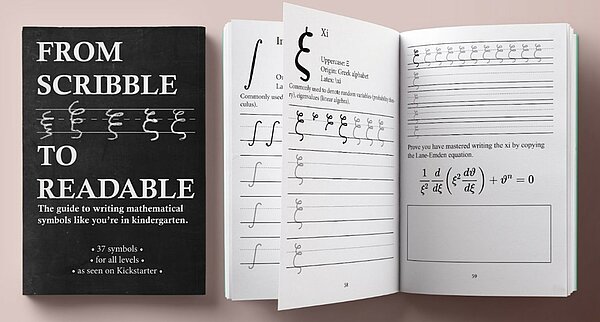
When I chose Data Science in 2017, at the end of high school, it seemed to open a lot of new doors for me. I was quite aware of the limits of classical programming. At the time there seemed to be a hype of all barriers being broken. And if you're 17 and very optimistic, then something like that is very interesting. The nice thing is that you can quickly start using it yourself. With open-source software, you can make something that is quite cool within an hour. I remember making an app that recognized if it was a cat or a dog based on photos. That gave me a lot of energy.
In the meantime, I have somewhat returned to my passion for Data Science. I'm a bit in between now. I find it fascinating now and I know that I have the background with mathematics to delve into it. But it appeals to me less than it did back then.
Why did you choose TU/e?
The Data Science study was only given in Eindhoven and Tilburg. I then chose Eindhoven, because I wanted to go to a technical university. So after that first year, I opted for Applied Mathematics and I could have gone to Delft, but if you have just built up your student life for a year and you had just committed to doing a board year at an association, I decided to go to Eindhoven. stay.
Are you going to do a master's after this?
The current plan is to do Applied Mathematics in Delft. The reason for this is that you have a little more freedom there in which subjects you choose. I've concluded that you don't want to become a specialist mathematician and then you can afford not to include some of the fundamental maths subjects, such as those required in Eindhoven, in that master. I don't have to choose until September 2022, so it gives me a little time.
I’m also still looking for a master's degree abroad. That's a decision I'll have to make in the coming months. In a way, I'm ready to jump in at the deep end. When moving to Eindhoven, it also felt a bit like that. You're never really ready. There’s always a reason not to do it, but sometimes it just has to be done.
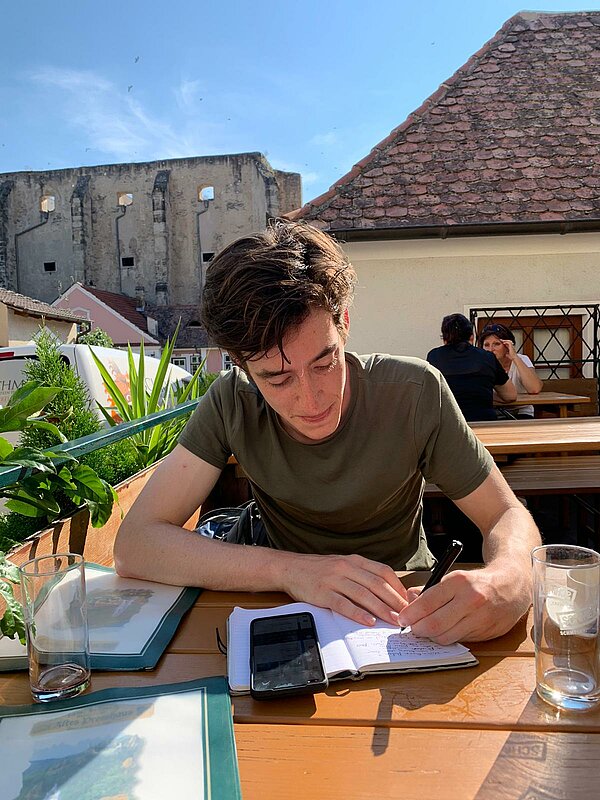
In which country would you like to do your master's?
Within Europe, I think the Netherlands is a good country to study. It's a privilege that I was born here. What appeals to me is the American spirit. The problem is that not many master's degrees are offered in mathematics. It’s mainly a PhD straight away, but I don't want to commit myself to that for three or four years. I also looked at Canada, The University of British Columbia, which is still on the list.
What attracts you to studying abroad?
Part of it is that I find it exciting. That gives some kind of reason to do it, to break the comfort. I’m curious about a different environment because the Netherlands is the only country I know. The circles in which I will later work are also increasingly international. It’s therefore quite a handicap if you have little experience in dealing with other communication styles. It’s of course impossible to learn them all by going to one country, but you show yourself that what you take for granted, does not have to be so obvious.
Don't you already have a lot to do with different nationalities in Eindhoven?
I have a lot to do with it. I’m an active member of the debating society Chronos. That is one of the few associations in Eindhoven that is mixed Dutch-international. Half of our members do not speak Dutch. That is how I come into contact with internationals quite a lot, and I’m with some good friends.
How did you join the debating society?
My parents are both historians. From home, there was always interest in the gamma subjects. I also have a broad interest. I can remember having several debates during high school and putting a lot of passion into that. I never really made a thing of it then and so I never joined a debate club. At the introduction week in Eindhoven, I came across the debating society, which was an international group that was debating at the time, and I felt I fit in with that. It’s also a valuable skill. That's not so much the reason I went there, but I did realize that afterwards. Debating allows you to think at the same time as you talk. That is something that everyone can do, but for many, it just doesn't click. It’s the feeling that they have to arrive somewhere prepared to be able to tell a good story. But once it clicks, a lot of things suddenly become a lot easier: presentations and pitches go a lot smoother. And another thing was when I came to Eindhoven, I thought I shouldn't just stay in the tech bubble. This way I can distinguish myself from everyone else who learns the same as you. In the end, tech and society go hand in hand, so you'd better understand as much of society as you can.
What student team are you in?
I have been with Team HART since the beginning of 2021. My technical expertise there is software. I write most of the software together with Robin van Hoorn. In addition, I also have a bit of mathematical modelling with Mariia Turchina. That is a kind of framework with math notation about the problem you are solving. I also do some organizational things.
Why do you work in this team?
I've always been thinking about starting a startup. But one of the things that are bad about startups and the startup culture is that it’s always directly focused on societal applications. This is necessary because it’s a major requirement for a successful startup. But if you look at other successful companies in history, you'll see that many were born out of genuine curiosity. It’s a privilege to be able to work in an atmosphere where everyone is highly motivated and you work with a cool technology that everyone is passionate about. That it’s not always questioned with 'is this immediately commercially possible in the coming six months?'. That's a big reason you can work on something cool, and that's often where you learn the most. With a team and thanks to the university and its resources, such as space and funding, but still being able to do something with a lot of freedom.
A second reason is that there are a lot of smart people in Team HART. I already knew a few via-via. And when they're together, it's like a train you don't want to miss. It’s a very nice environment to move in.
What did you learn from the student team?
At Applied Mathematics you do not learn to write software. I can improve that skill now. I see it's important to be able to do that. And despite all the professional skills you gain in college, sometimes you forget that you need to sell yourself a little. If you've worked hard for a week on something, in your eyes, very cool, and you don't arrive with nice slides, it won't land. Of course, you would rather spend that time on your work, but it’s still worth presenting it well.
Do you work next to your studies?
I’m a student assistant to Dr. Remco van der Hofstad. He also teaches some courses in our bachelor. He approached me to illustrate his book 'Random Graphs and Complex Networks. Then I uniformly illustrate schematic networks so that it looks nice in the book. I’m now doing my Bachelor's Thesis on the same subject, with Dr Van der Hofstad as a supervisor!
Do you do more besides your studies?
About a year and a half ago, at the start of the lockdown, I wrote a corny math book together with a good friend of mine, Tristan Trouwen. It’s a notebook to learn to write mathematical symbols in a childishly easy way. We came up with the idea because I had a lot of trouble deciphering the handwriting of a teacher on the chalkboard.
We then made a Kickstarter project that did very well and raised about 7,500 euros. That was largely due to a retweet from Grant Sanderson of 3Blue1Brown. Since then we have been running a webshop, where we still sell the booklet. We have already sold thousands of copies in more than 38 countries and now regularly deliver larger print runs to various universities, including in Russia.
The Cursor even wrote an article about it.
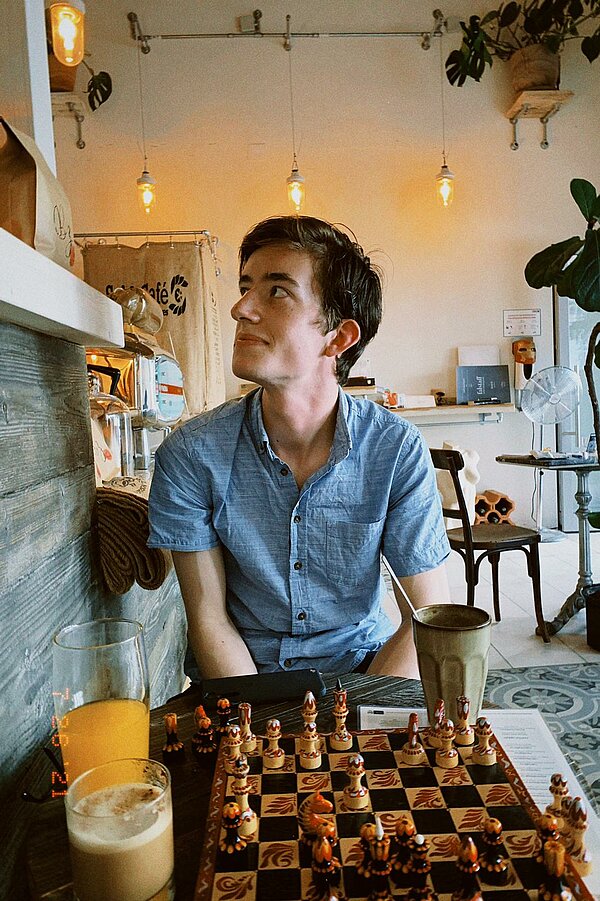
You indicated that you would like to set up a startup. Do you want not to work in a company first?
I don't dream of starting a company right after my studies. I have the luxury problem that I come from a technical university and that I can be quite picky. You have to be honest with yourself and at a university, you grow up in a bubble. You have to learn a bit yourself where to add that value. That is the pragmatic reason to start with a company for a few years first. But I would prefer to set up a startup right away. I have often been trying to see if I can work out a business case that I can work with.
In which field would you like to set up a startup?
I get excited pretty quickly when you have a new perspective of looking at a particular problem in a way that people haven't thought about it before. But I find it difficult to say in which field I would like to work exactly.
I have always cared a lot about our climate. The energy transition is a field in which I see myself working. Some issues are mainly technological, so that's where the challenge lies. Within transport, a few things have always interested me and those are electric flying and small drones. But with drones, it’s very difficult to find a realistic but useful application. And to be honest, I still find information technology fascinating.
What do you find important about a later job?
What seems important to me is that you are in a position where you come up with the solution to the problem and not just implement it. It has to do with the autonomy in your work. It gives me more energy when I have more autonomy. If I can think about the bigger problem and the solution to it. Small optimizations don't appeal to me.
What do you think about studying and living in Brainport Eindhoven?
Student life is very different here than in Leiden. I still have many friends in Leiden, so I can see the differences a bit. In Leiden, you may have more choices on a social level and of course, it’s always easier to see what you don't have than what you do have. But what I like about Eindhoven is that you notice that there is an upward trend. More happens every year. Enthusiasm in the region and attention for the region is growing. I’m very curious about what Eindhoven will look like in five years.
What else would you like to tell (future) students in Brainport Eindhoven?
What I would recommend to everyone is to move into a room and to go 100% into student life. That doesn't necessarily mean experiencing all the parties, but make sure you get busy and that you can do something cool after the first year. In my case, I was very happy that I could do a board year. That gave me the confidence of: you don't just have to stand on the sidelines, you can participate yourself.
And you also want to give to keep your eyes open and follow your interests. If you see a student team that you think looks cool, send them an email to talk. You don't have to join right away, but you can learn a lot that way. But of course, it's different for everyone.
